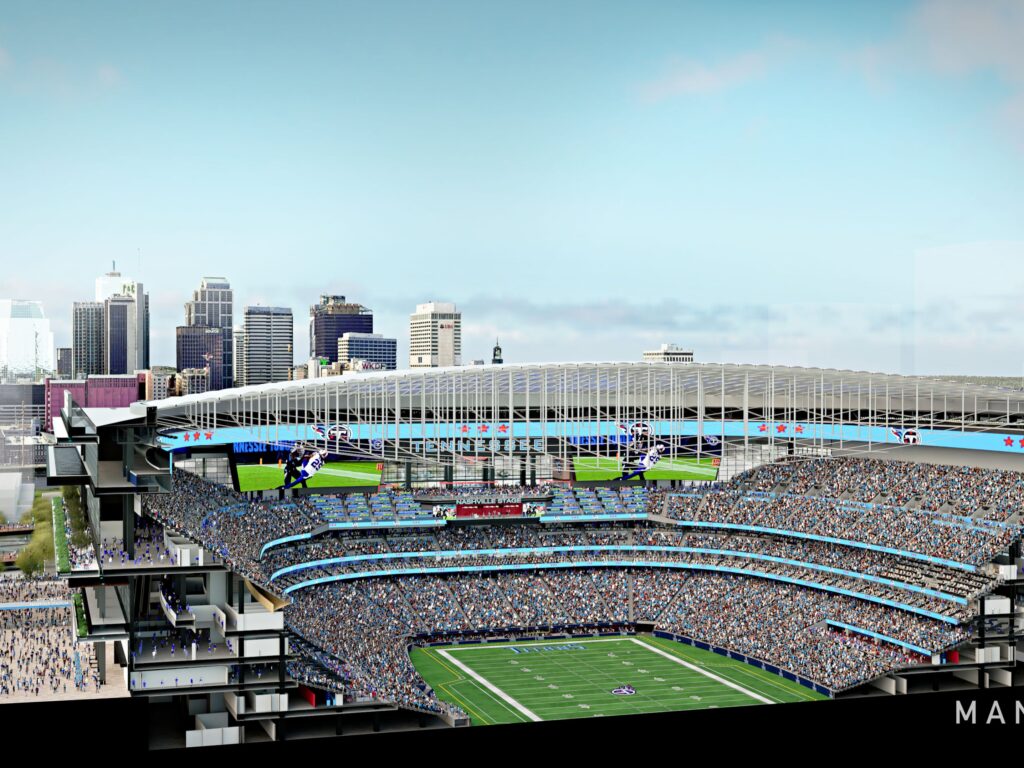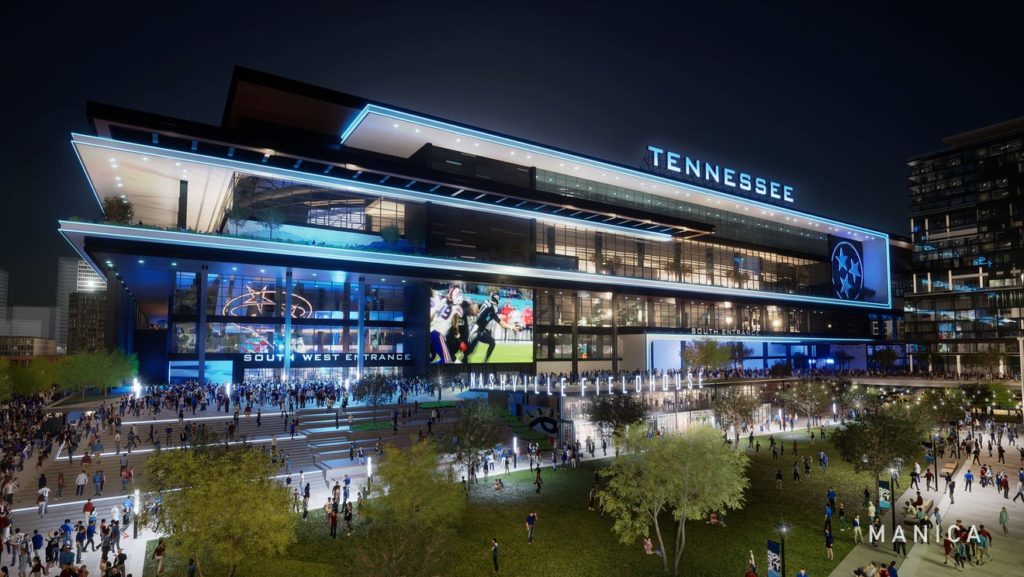
A new Tennessee Titans stadium set to be built in the Nissan Stadium area and intended to spur development on that facility’s parking lots is on pace to be approved in coming weeks, despite opposition from some local residents.
The Titans have proposed a new 60,000-seat fixed-roof stadium to replace Nissan Stadium, which would be torn down and the site used for additional mixed-use development. The new stadium, located on the Interstate 24 side of the current Nissan Stadium property, would be built adjacent to current stadium, planned as the centerpiece of a new mixed-use development across the river from downtown Nashville, opening for the 2026 NFL season. Nissan Stadium would then be torn down, with that facility’s acreage as well as that of adjacent parking lots be used to round out the development.

The deal, as approved by the Nashville Metro Sports Authority, calls for the authority to issue a $760 million revenue bond backed by local sales taxes, personal-seat license sales and a 1 percent countywide hotel tax increase, immediately to launch construction. The state has committed to a $500 million bond. The Titans have committed $860 million, as well as construction overages beyond the $2.1 billion budget and ongoing maintenance costs. Nissan Stadium, built on the cheap, has been estimated to need $1.8 billion in repairs; when that figure was revealed, talk of renovations and repairs quickly took a back seat to discussions over a new stadium between city, Davidson County, state and Tennessee Titans officials. The new stadium would be owned by Metro Nashville, which will also work on development of the 100 acres surrounding the new stadium, pitched as a mixed-use stadium village.
There are local groups opposed to the plan, saying that issues like affordable housing should rank as a higher priority for local elected officials, no matter how the deal is structured. And, indeed, this does involve what appeared to be the highest level of public spending on a new NFL stadium and associated development; SoFi Stadium, home of the Rams and Chargers, had a reported price tag of $5.5 billion, but that was privately financed. From The Tennessean:
Deputy Mayor Sam Wilcox said the deal benefits all parties because taxpayers are relieved of the high costs of stadium maintenance, and it encourages redevelopment of the mostly industrial East Bank in line with community priorities.
“Mayor Cooper believes (the) two most important takeaways from the deal (are) avoiding a nearly $2 billion burden so that Nashville can continue funding key priorities such as our schools, safer streets and new and reliable city infrastructure; and shaping the looming future growth on the East Bank into a neighborhood with affordable housing, green space, transit access, riverfront activation and more to serve the entire city,” Wilcox said.
The nonpartisan Sycamore Institute called the public financing “the largest taxpayer subsidy for an NFL stadium on record” but acknowledged that the investment would be repaid by “diverting future tax collections to repay those debts.”
Of course, we’re still awaiting the final details of the plan and what, if any, community benefits are involved. Basically extending downtown across the Cumberland and onto the East Bank is an appealing prospect for many–especially for a city that thrives on tourism and big events, both of which will benefit from this stadium–and with the city basically giving up on maintaining Nissan Stadium several years ago, there aren’t many long-term options out there.
Renderings courtesy Tennessee Titans.
RELATED STORIES: Nashville Metro Sports Authority approves new Tennessee Titans stadium; New Nashville stadium closer to reality
